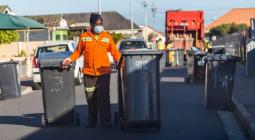Communities in Kenya fight carbon project that sold credits to Meta, Netflix

The Scoop
NAIROBI — Members of Kenya’s Maasai pastoralist community are clashing with managers of a major carbon project, raising new concerns that international demand for carbon credits generated in Africa could have damaging consequences for local communities.
The Northern Kenya Rangelands Carbon Project (NKRCP), which describes itself as the world’s largest soil carbon removal project, has sold carbon credits to corporations including Meta, Netflix and UK bank NatWest. It restores and maintains grasslands to absorb carbon, including by managing grazing patterns of livestock herds on the 4.7 million acres it covers. Absorbing carbon allows it to generate carbon credits which can be purchased by corporations to compensate for their greenhouse gas emissions.
The project, however, continues to face significant opposition from many members of affected local communities, who say it is disrupting their ways of life and denying them access to their ancestral land. Many also say it puts women at risk due to harsh work conditions in some areas.
Community activists working in Baringo, Narok and Kajiado counties in Kenya, where the project operates, told Semafor Africa that NKRCP had failed to undertake proper public participation or educate local communities, leading to complaints from members of affected communities and resistance to the project’s efforts to fence off land in some areas. They claimed that the Northern Rangelands Trust (NRT), which runs the project, has failed to gain the informed consent of affected communities for the carbon project as is legally required, despite the NRT’s insistence that it has letters of consent.
Erin, a community activist working in Narok and Kajiado whose name has been changed to protect her identity, said that many households of the Maasai were grappling with disruptions to grazing practices as well as access to ancestral land due to the project, with several households opposing efforts by the project to fence off land for the project.
“They will fence it (ancestral land) and tell you you’re trespassing,” she said. “We have our own traditional way of herding and grazing patterns. They need to respect indigenous knowledge.”





